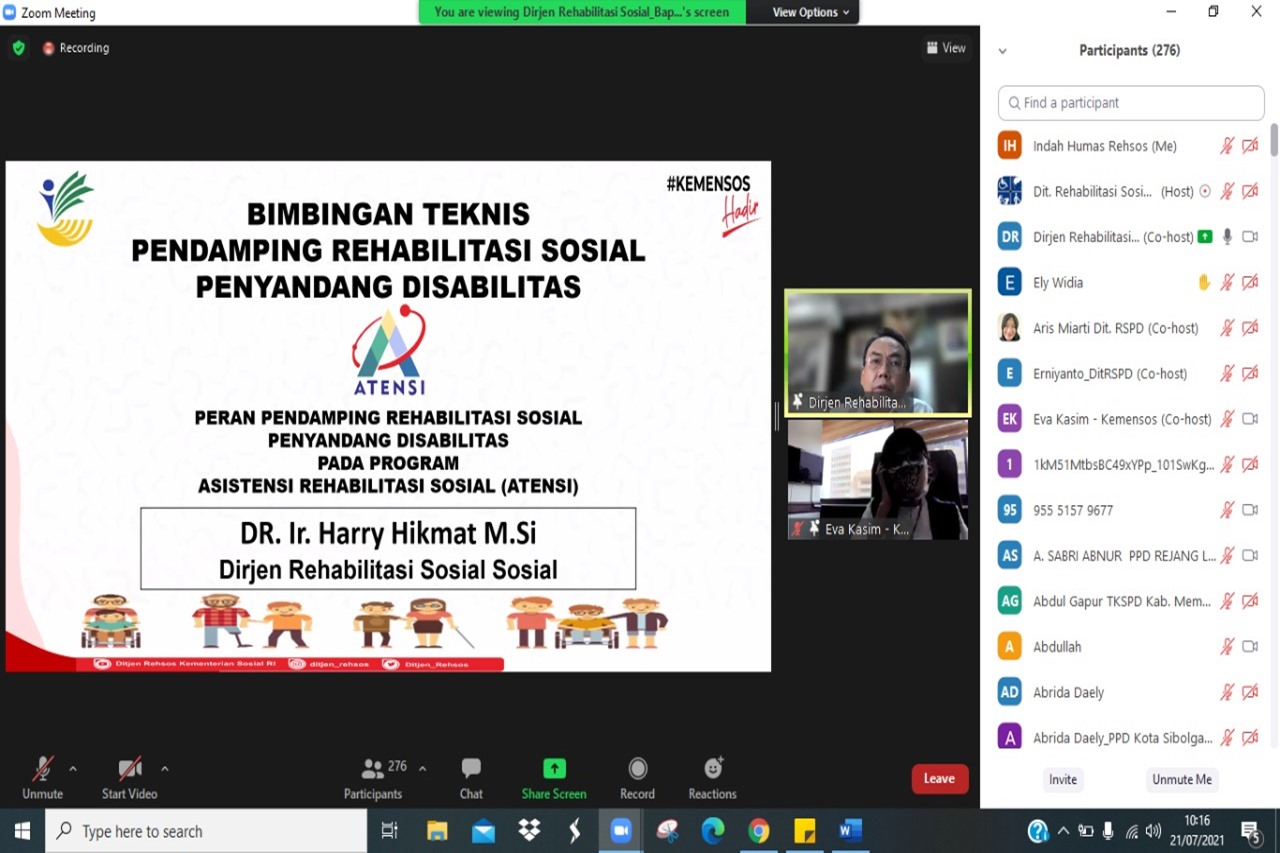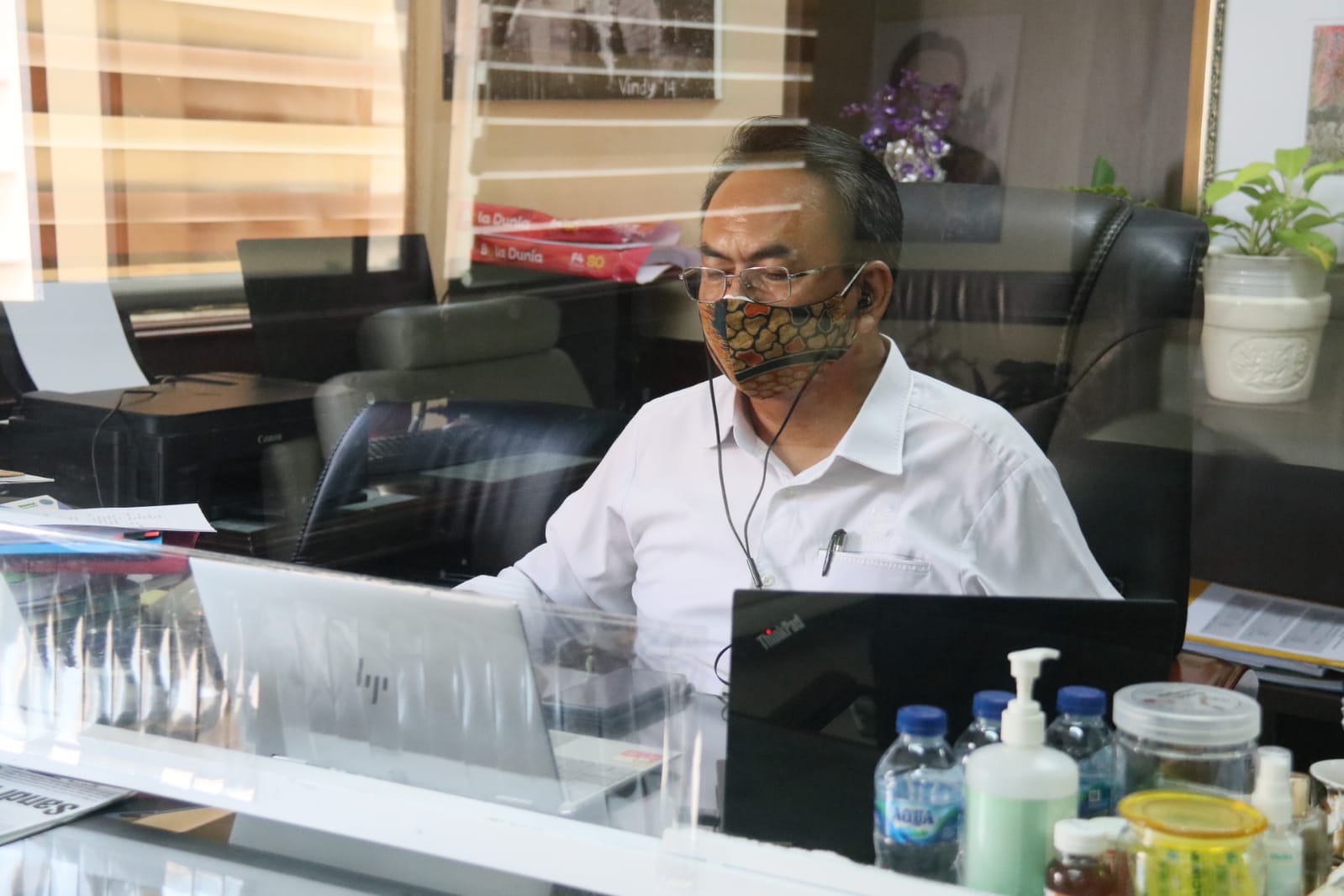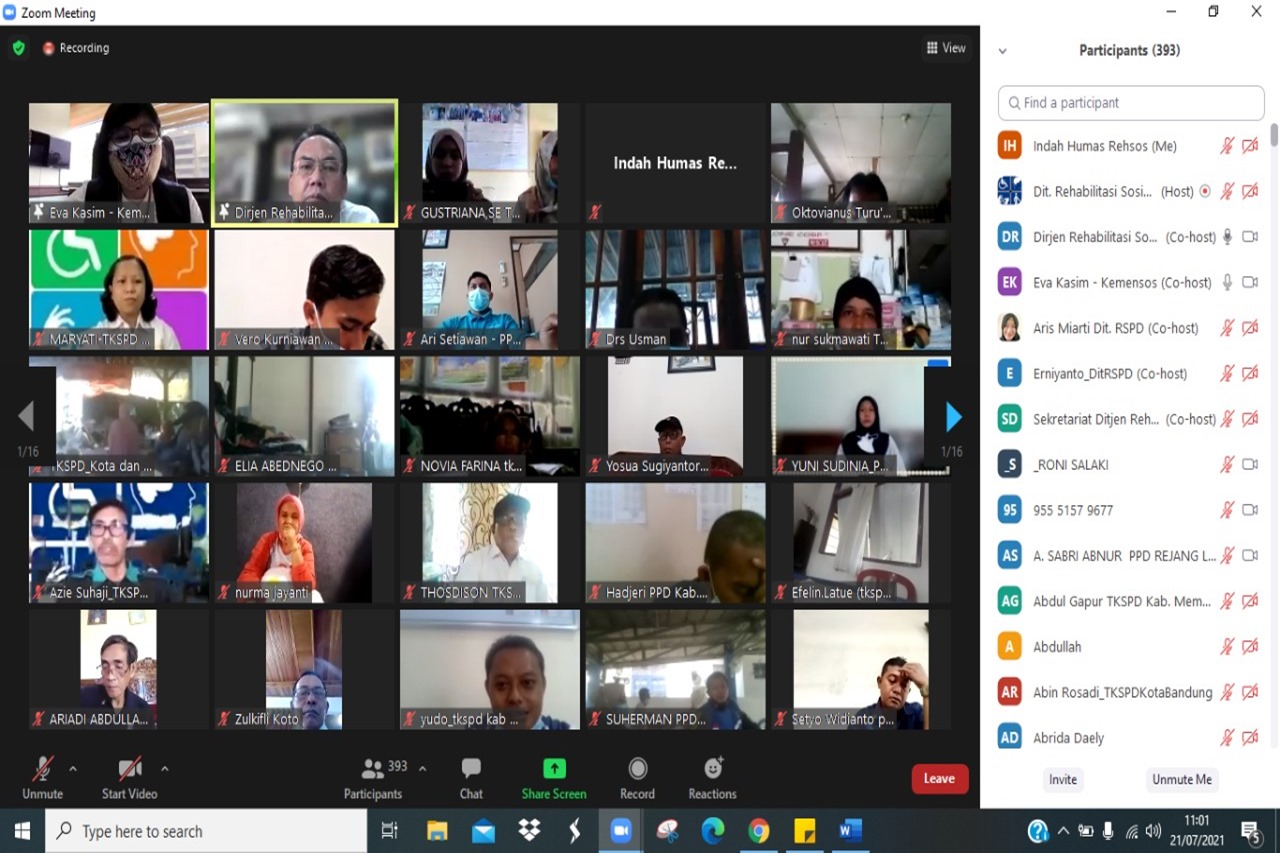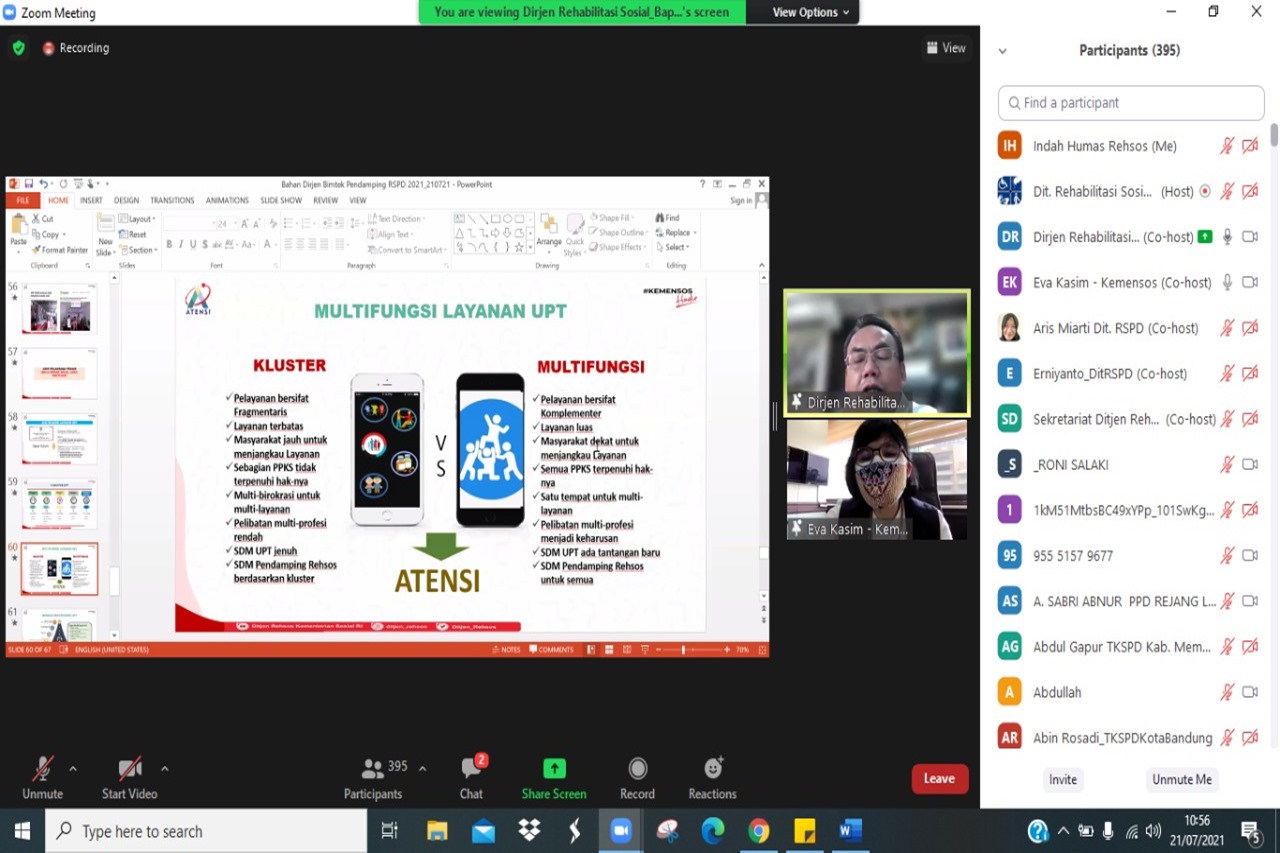JAKARTA
(July 21, 2021) - The Directorate of
Social Rehabilitation of Persons with Disabilities of the Ministry of Social
Affairs held a Technical Guidance for Social Rehabilitation Facilitators. The
technical guidance which is held virtually aims to update information about the
Social Rehabilitation Assistance (ATENSI) service that will be carried out by the
facilitators in the field.
The Director General of Social Rehabilitation
of the Ministry of Social Affairs, Harry Hikmat, directed that Social
Rehabilitation Facilitators could study the Minister of Social Affairs
Regulation (Permensos) Number 16 of 2020 on Social Rehabilitation Assistance
(ATENSI). "This Permensos can be
a reference in the implementation of ATENSI services", said Harry.
The Permensos
mandates a differentiation of roles between the Head Office and the Social
Rehabilitation Center. ATENSI service is a direct service to beneficiaries
carried out by Social Rehabilitation Center.
This direct service component includes support
for the fulfillment of a decent living, social care, family support, therapy
(physical, psychosocial, and mental-spiritual therapy), vocational training and
entrepreneurship development, social assistance, as well as accessibility
support.
Therefore, at this Technical Guidance, Harry
emphasized that the Social Rehabilitation Facilitators must be committed to the
Social Rehabilitation Center in working together to implement ATENSI services.
"The integrity of friends will be seen if you totally cooperate with the Center",
explained Harry.
Social Rehabilitation Facilitators also do not
only assist beneficiaries, but also help collect data, provide
education, motivation to socialize government programs, especially the Ministry
of Social Affairs program.
Harry also directed that his party immediately
divide the work area of the facilitators based on the presence of the Center.
The scope of targets handled by Social Rehabilitation Facilitators is not only
persons with disabilities, but all social rehabilitation clusters such as the
Children, Elderly, Drug Abuse Victims and Persons with Social Deviance Issues
and Trafficking Victims.
 Bahasa
Bahasa
 English
English





